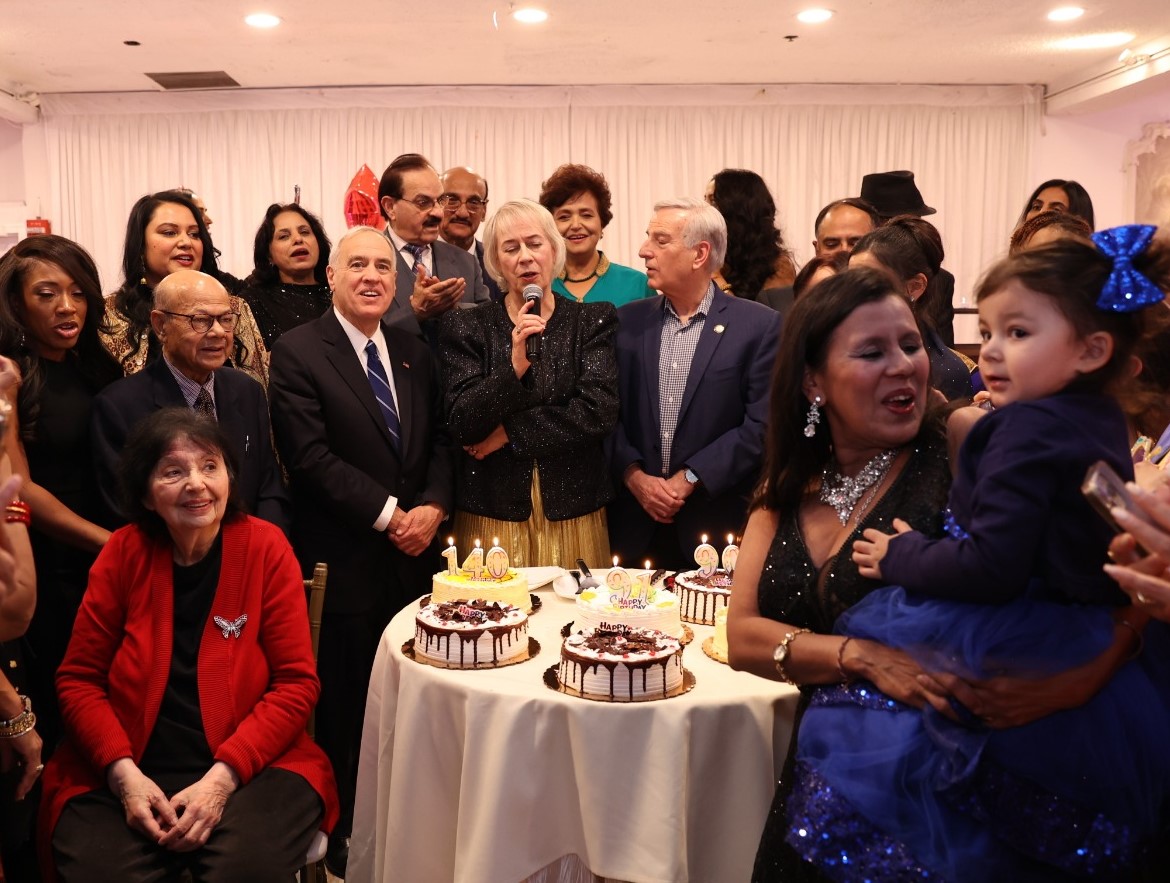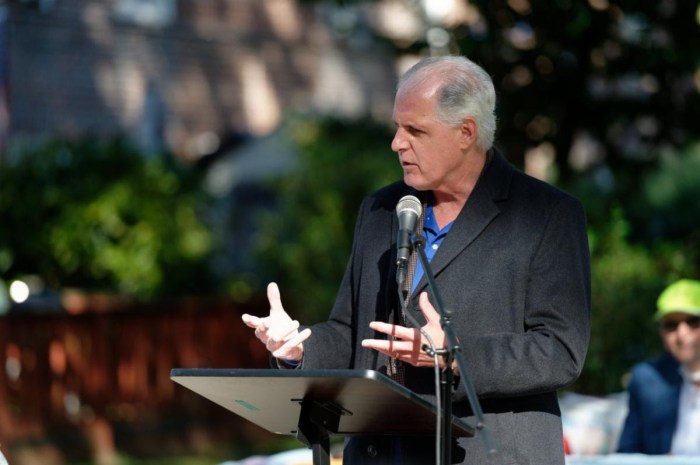By Rania Richardson
Spotlight on festival films; third year in a row Chinese film wins
Can a film festival be successful if the press covers the sushi more than the movies? At the conclusion of the 4th Tribeca Film Festival, more than a dozen films stand out as potential breakouts, but only one event gets unanimous accolades —Showtime’s now legendary annual private party at Nobu, where guests are plied with an endless parade of raw fish and champagne.
As usual, the festival screened a dizzying number of films, and this year yielded some puzzling results. While festival cineastes buzzed about “Transamerica,” and “The Beat My Heart Skipped,” the narrative feature jury was voting “Stolen Life (Sheng Si Jie)” by Li Shaohong best feature, and as participants were recommending “Coca- The Dove from Chechnya.” The documentary feature jurors were choosing “El Perro Negro: Stories from the Spanish Civil War” by Peter Forgacs. Those top-winners were absent from most critics’ preview lineups. Why weren’t those films recognized earlier? Is the film lineup just too long?
Perhaps the free guide is the problem. Confusing and outdated, its organization makes finding a film a time consuming pursuit. Even winner “Stolen Life” is listed by its original English language title, “Life and Death Plunder.”
Improbably, this is the third year in a row for a Chinese film to take the top prize. Even more mystifying is that the last two winners virtually disappeared following Tribeca. After its 2003 award, “The Green Hat” found no distributor. After its award in 2004, “Blind Shaft” had a brief theatrical run that made under $35,000. (This gem is available on home video, and should not be missed.) What fate will “Stolen Life” have? Is Tribeca jinxed or is this in fact quintessential festival programming of non-commercial fare?
With no bidding wars and only a handful of small distribution deals made as of this writing, the festival has not turned the corner and shown signs of becoming a significant market like Sundance. Harvey Weinstein, Bob Berney, and several other prominent distributors are transitioning to new jobs and may be focused elsewhere. Local industry execs are not putting the rest of their lives on hold for Tribeca as they do with out-of-town fests.
Complete with a multiplex, Chevy’s, Applebee’s, and a DSW shoe store, the festival’s epicenter is a suburban oasis within luxe Tribeca, and may not be enough of a draw. But where would the festival be without the 11-screen Regal Cinemas? Comfortable seats and perfect sightlines are a joy. (Temperature fluxuations and sound leakage need to be addressed, though.)
Holding the opening night red carpet screening of “The Interpreter” at the Ziegfeld Theater in midtown is another one of the festival’s paradoxes.
Yet, after standing in the drizzle, after the lines and the herding, and the sold out shows, after making the (long) five minute trip up and down the Regal Cinemas’ escalators numerous times, at the end of ten days of screenings, among the many, I have seen some remarkable, some provocative, and some stunning films.
“Devil’s Miner” is a striking documentary. Co-director Kief Davidson told me that he and his partner, Richard Ladkani, had planned to make a historical film in Bolivia and switched gears to make a personal story once they met the disarmingly charming Basilio Vargas, a fourteen-year-old working in the silver mines. Sumptuous visuals, shot on digital video, are proof that the inexpensive medium is developing quickly.
Another fascinating doc, “A State of Mind,” directed by Daniel Gordon, follows gymnasts preparing for North Korea’s mass games. Young female students direct their youthful infatuations towards performing well for their country’s leader, Kim Jong IL. Unprecedented access to the closed society reveals U.S. imperialism being discussed in grade schools.
From Burkina Faso, “The Night of Truth,” is a horrific, yet lyrical depiction of a fictional war in Africa. Through an interpreter I asked director Fanta Regina Nacro if her poetic style was personal or shared with her culture and she hesitated and said she could not make a distinction between the two. The compelling and dramatic story gives an insider’s perspective on war in Africa.
Also poetic is Sally Potter’s experimental “Yes,” which even uses rhyming couplets as dialogue. An affair between an Irish-American scientist (Joan Allen) and a Lebanese former surgeon (Simon Abkarian) explores the intertwining of sex, politics, and religion. “Yes” is as sensuous as it is cerebral.
Director Costa Gavras and his wife and producer, Michele Ray-Gavras held a press conference for “The Axe,” a thriller located in the cut-throat world of business executives. This finely crafted nail-biter works as a metaphor for the negative consequences of globalization. Of the film’s murderer-protagonist the director says, “He’s a hero I want the audience to like, but hate themselves for liking him.” Gavras and his wife are so in synch, they finish each other’s sentences, and describe going to the movies together several times a week for over forty years.
As its identity evolves, the Tribeca Film Festival continues to be an enigma, like the Zen riddle, “What is the sound of one hand clapping?”
WWW Downtown Express




































